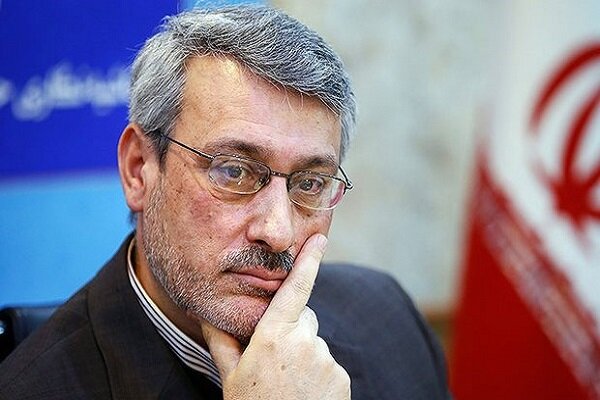U.S behaving like a bully and has isolated itself: Iran’s ambassador to UK

TEHRAN - Hamid Baeidinejad, Iran’s ambassador to the UK, says the United States is behaving like a bully and this has led to the isolation of the country in the world.
“The U.S is behaving like a bully and has isolated itself from the international community,” Hamid Baeidinejad tells the Tehran Times in an exclusive interview.
In a statement late on Saturday, September 20, U.S. Secretary of State Mike Pompeo announced that all UN sanctions against Iran have returned.
However, all parties to the nuclear deal including the E3 – the United Kingdom, Germany, and France – European Union foreign policy chief Josep Borrell, and Russia issued statements insisting that the move is illegal because the U.S. is no longer a member of the JCPOA, the official name for the 2015 nuclear deal.
In their statement, the E3 said the U.S. move is “incapable of having any legal effect” and that they “remain committed’ to JCPOA. Borrell also said the U.S. cannot be considered to be a participant in the nuclear deal and cannot trigger the snapback mechanism to restore UN sanctions on Iran. Russia also said the move is "legally and procedurally null and void." China also said, "It's time to end this self-orchestrated farce.”
Prior to the statements by the parties to the nuclear deal, almost all permanent and non-permanent members of the UN Security Council had rejected the U.S. move to extend an arms embargo against Iran in violation of Resolution 2231 and its move to return the terminated UN sanctions.
Ambassador Baeidinejad said the U.S. move to impose sanctions against Iran is considered “unilateral and against established principles of international law.”
The following is the text of the interview:
Q: How do you assess the announcement by Mike Pompeo that the UN sanctions against Iran have been returned because of what he called “activation of the trigger mechanism” by Washington?
A: the U.S. move in the Security Council has been faced with rejection. The members of the Security Council have all, through official letters and statements, stressed that the U.S. move has not been able to trigger the process of returning the past six Security Council sanction resolutions and it has, therefore, no legal effect.
“We hope that the U.S. total failed diplomacy would wake up the American leaders and make them correct their stance and change course.”Q: What is your analysis of the stance of three European countries (E3), especially the UK, regarding the United States’ claim in returning UN sanctions? Have the Europeans taken any practical steps in support of the nuclear deal?
A: It is a reality that withdrawal by the U.S. from the JCPOA and imposition of sanctions deterred many European companies to enter into trade and economic agreements with their Iranian counterparts. This situation led the nuclear deal to a lot of problems. We certainly expected more from the UK and other European countries in implementing their obligations under the JCPOA (i.e. Iran nuclear deal), but we may not underestimate the adoption of principled positions from the UK and other E3 states in upholding the agreement despite its implementation reduced to a minimum level. This principled position from the E3 has greatly angered the U.S. administration and consequently, a lot of political frictions have emerged between the E3 and the U.S.
The nuclear deal, despite all such major challenges, continues to survive and Iran, the E3, Russia, China, and the EU as the remaining parties to the JCPOA struggle to set the tune and create the necessary foundation that the agreement be fully implemented.
Q: Don’t you think that this policy that the Trump administration has adopted toward the JCPOA would lead to Washington’s confrontation with the international community in general and the Security Council in particular?
A: The Security Council is already in a very difficult situation. The withdrawal of the U.S., a veto power member, from an agreement that is part and parcel of the Security Council resolution created an unprecedented situation in the Council. The U.S. quite strangely even started to sanction the permanent members of the Security Council for implementing the Council’s resolution adopted under chapter 7 of the UN Charter.
Q: Given the Security Council’s opposition to the U.S. move against the JCPOA, what do you think will be the White House’s next step against Iran?
A: As Iran and members of the Security Council have reiterated, no additional step is envisaged at the Council at this stage. From the point of the Security Council, the U.S. announcement is totally disregarded by the Council with no legal effect. The consideration of the issue is thus closed with no practical action.
Therefore, any imposition of sanctions by the U.S. against Iran is considered unilateral and against established principles of international law. The U.S is behaving like a bully and has isolated itself from the international community. We hope that the U.S. total failed diplomacy would wake up the American leaders and make them correct their stance and change course.
